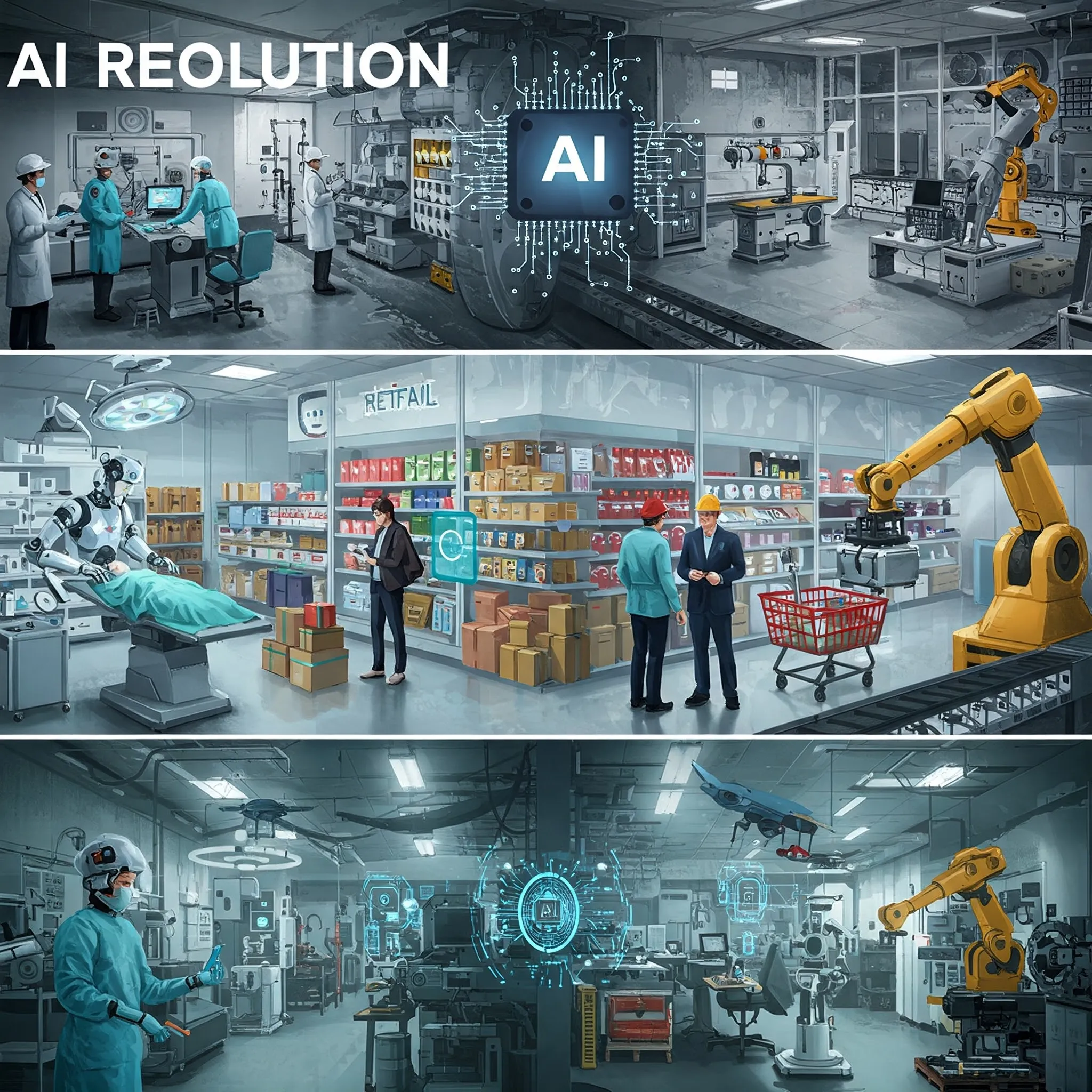Artificial intelligence is no longer science fiction. It’s today’s reality that’s changing industries at light speed and the way we work and live. From personalized medicine to production optimization, the impact of AI is gigantic and pervasive. Share with us how AI is revolutionizing three of the largest industries: healthcare, retail, and manufacturing.
Healthcare: A New Era of Precision and Personalization
AI is transforming the health care industry and more precise therapy, more precise diagnosis, and improved patient outcomes are its inheritance. This is due to:
Accuracy of Diagnosis: Medical imaging such as X-rays and MRIs are diagnosed more accurately by AI software than doctors and disease such as cancer is diagnosed sooner. It can lead to earlier treatment and improved survival rates.
Personalized Medicine: AI can scan in volumes of patient information, genetics, and write out as per specific specifications. Personalization would amplify the effect of the drug but minimize side effects.
Drug Discovery and Development: AI reduces time gaps taken by drugs to find out by sifting challenging biological data and identify whether the lead drug would be a dud or a hit without losing time and money.
Remote Patient Monitoring: Telemedicine application and smart wearable sensors enable real-time monitoring of patient health and condition detection with treatment.
Administrative Efficiency: Insurance claims and appointments are automated by AI for caregiver activities to enable caregivers to concentrate on care. Retail: Customer Experience Personalization and Process Automation
Retail is using AI to deliver personalized customer experience, process automation, and enhance operating efficiency:
Personalized Suggestions: AI-driven apps track detailed customer shopping and buying habits to make product suggestions based on individual profiles, driving sales and satisfaction.
Chatbots and Virtual Assistants: AI-driven chatbots provide real-time customer support, answer questions, and facilitate the buying process, improving customer experience.
Inventory Management: AI predicts demand and optimizes inventory, reducing stockouts and reducing the cost of holding inventory.
Fraud Detection: AI implementation detects suspicious transactions in real-time, which benefits businesses as well as consumers by safeguarding them from losses.
Supply Chain Optimization: AI optimizes supply chain as well as logistics management, reducing delivery time as well as streamlining operations.
Visual Search: AI enables visual search by the consumer for goods, which is simple to find a product of one’s preference.
Manufacturing: Smart Factories Finally Here
AI is making the smart factory dream a reality through the use of data analysis, automation, and predictive maintenance to redefine manufacturing operations:
Predictive Maintenance: AI translates sensor input into predicting equipment failure and enabling maintenance with a delay.
Quality Control: AI vision software is faster and more effective than man-power in detecting defects while inspecting goods, enhancing quality and reducing wastage.
Robotics and Automation: AI-powered robots perform accurate and efficient complex tasks with highest efficiency and lowest labor expense.
Supply Chain Optimization: AI optimizes business and supply chain planning logistics to transport raw materials and finished goods timely and efficiently.
Process Optimization: AI converts production data into bottleneck identification and optimizes processes and attains highest efficiency at lowest cost.
Digital Twins: Artificial intelligence is used in such a manner that virtual copies of actual manufacturing processes are developed in such a manner that they are replicated and optimized beforehand before being applied in the real world.
As more innovation in AI technology is done, much more revolutionary change in every area of business can be anticipated. What AI can achieve in taking efficiency forward, improving customer service, and handling intricate issues is unthinkable. But there should be some tension with the ethics and the effects and outcomes of AI utilization, for instance, job loss and data security.
If we use AI intelligently and sensibly, then we can reap its potential to the maximum and build a new, forward-thinking, and enlightened future.

